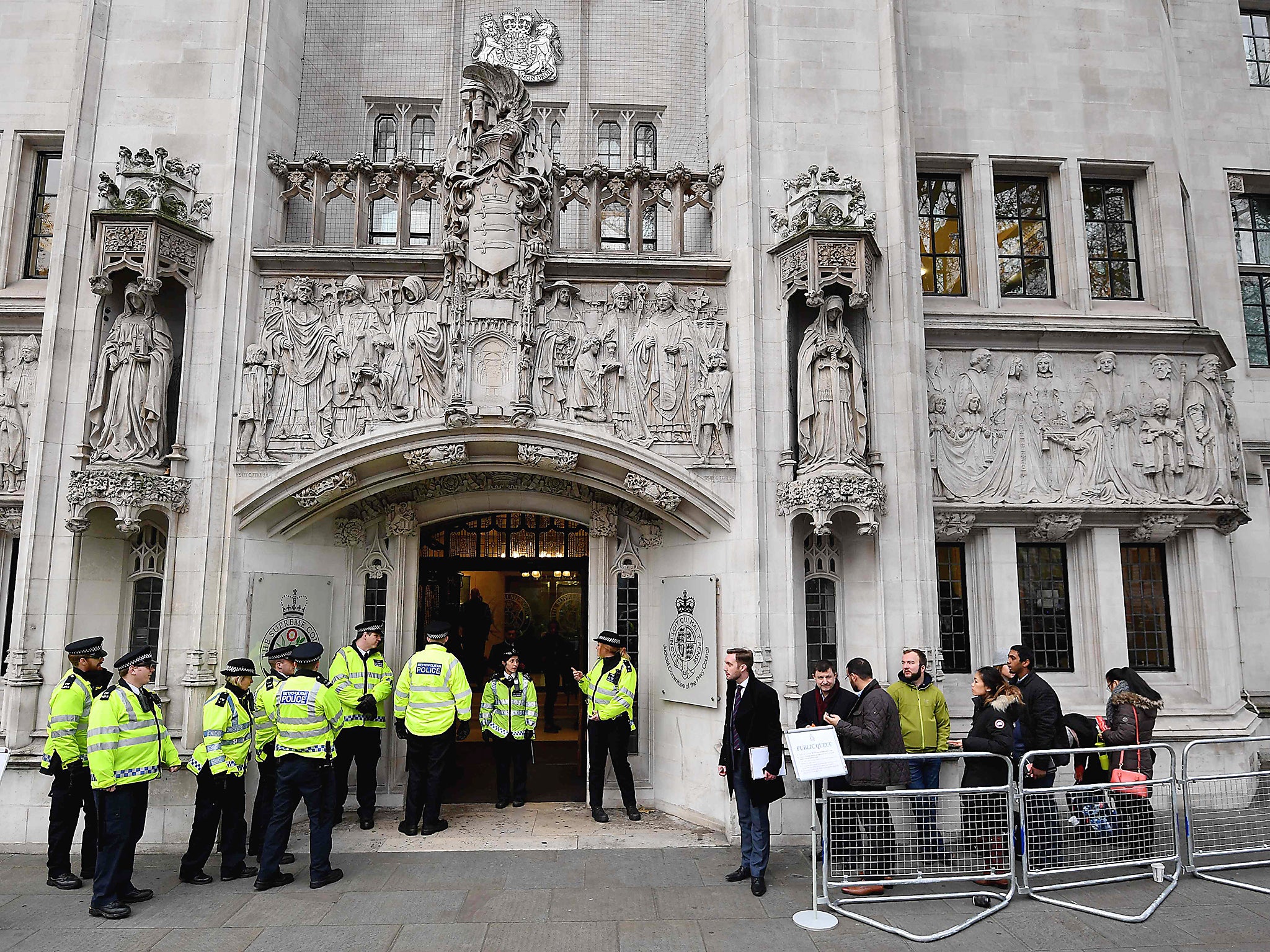Parliament should have say on who joins the Supreme Court, says Iain Duncan Smith
The former Work and Pensions Secretary says the UK's system should be more like America, where would be appointees are subject to extensive public hearings

Your support helps us to tell the story
From reproductive rights to climate change to Big Tech, The Independent is on the ground when the story is developing. Whether it's investigating the financials of Elon Musk's pro-Trump PAC or producing our latest documentary, 'The A Word', which shines a light on the American women fighting for reproductive rights, we know how important it is to parse out the facts from the messaging.
At such a critical moment in US history, we need reporters on the ground. Your donation allows us to keep sending journalists to speak to both sides of the story.
The Independent is trusted by Americans across the entire political spectrum. And unlike many other quality news outlets, we choose not to lock Americans out of our reporting and analysis with paywalls. We believe quality journalism should be available to everyone, paid for by those who can afford it.
Your support makes all the difference.Iain Duncan Smith has called for parliamentary hearings to be held over who is appointed to the Supreme Court, as the country's highest court is in the midst of deciding whether parliament or the Prime Minister has the right to trigger Article 50 and begin Britain's exit from the European Union.
In an article for the Daily Mail the former Work and Pensions Secretary said: "As the courts stray more into political territory, I believe it becomes imperative that we know more about those placed in such positions of power. It is no good railing against newspapers for seeking to lift the veil of secrecy surrounding the interests and backgrounds of our Justices, as though this were some sort of assault on the independence of the court.
"In the U.S., such appointees undergo gruelling hearings in the Senate which pore over every aspect of their legal opinions and personal lives. Since our Supreme Court is modelled on that of America (albeit with some differences), I believe it's time for us to introduce a process of Parliamentary hearings to examine candidates for the Supreme Court when a vacancy has to be filled."
The Daily Mail has been heavily criticised for publishing stories on the careers and background of the 11 judges who will decide the case, highlighting the 'European links' of several.
'Whatever the outcome of the Government's appeal, this process has shone a light on the Supreme Court as never before, and has raised questions about the nature of the Court and the supremacy of Parliament which have until now been shrouded in obscurity. It is surely only right to recognise that, and to allow Parliament to question those who seek to sit in the highest court in the land.'
The Supreme Court was created by Tony Blair's government in 2003, replacing the former highest court of appeal, which sat in the House of Lords, inside parliament itself.
Later today, the commons will vote on a Labour bill to put details of the government's Brexit plan before parliament, but it will include a Conservative amendment that the triggering of Article 50 should take place before 31st March 2017.
Join our commenting forum
Join thought-provoking conversations, follow other Independent readers and see their replies
Comments